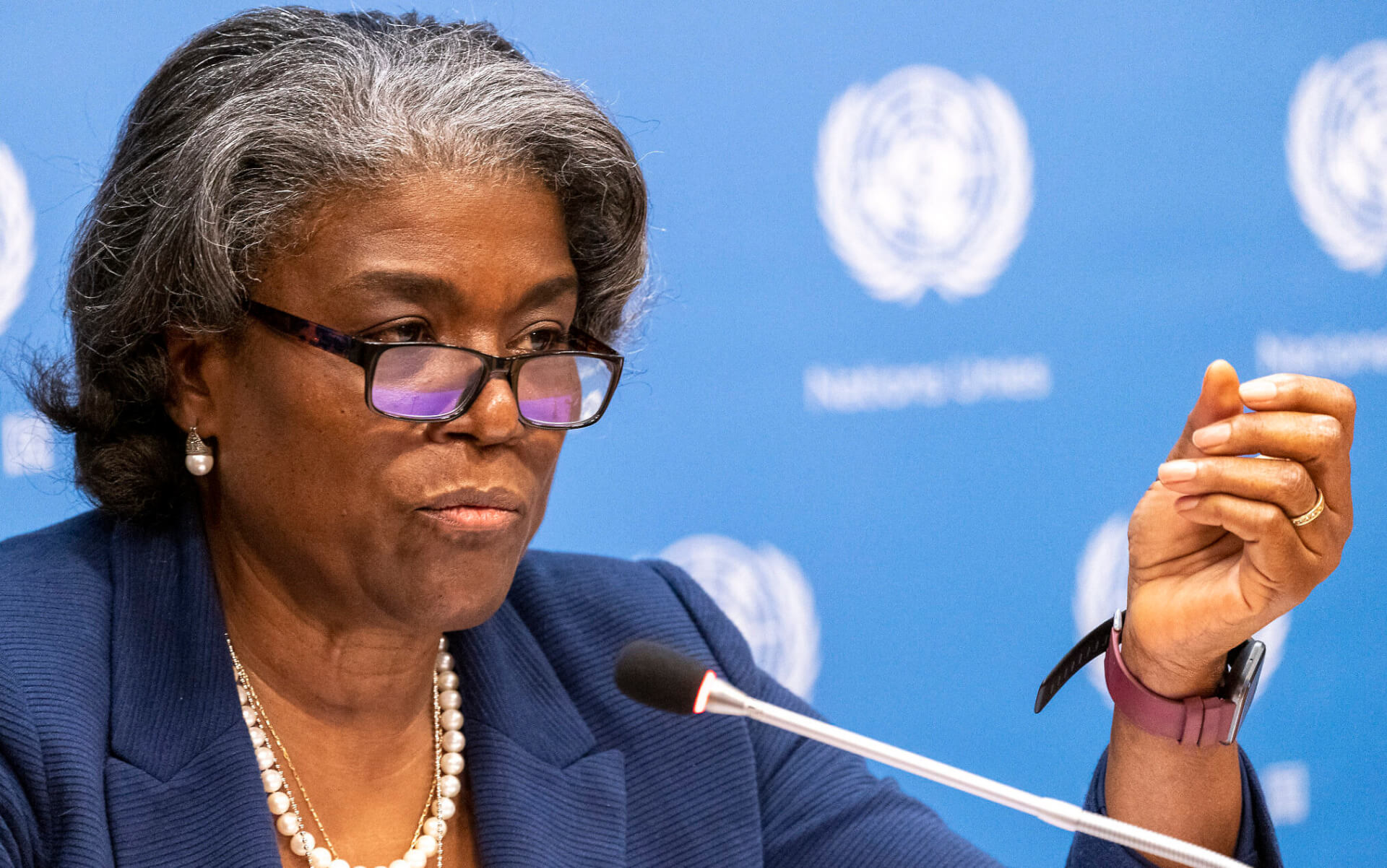The United States’ (US) Ambassador to the United Nations (UN), Linda Thomas-Greenfield, called on India to reconsider its decision to temporarily ban wheat exports, warning that it would “exacerbate food shortages” on a global scale.
Both German Foreign and Agriculture ministers made comments on India banning wheat exports. While foreign minister cited how serious situation, Agri minister was not happy with the development. German is G7 chair, and comments came after G7 meetings.
— Sidhant Sibal (@sidhant) May 14, 2022
Addressing a query during a virtual New York Foreign Press Centre briefing about India’s decision, the American envoy said that the issue will be brought up by Secretary of State Antony Blinken during the UN Security Council (UNSC) debate on the “Maintenance of International Peace and Security: Conflict and Food Security,” scheduled on Thursday.
Indian Minister of State for External Affairs and Parliamentary Affairs V. Muraleedharan will also attend the meeting and is scheduled to address the meeting.
Thomas-Greenfield expressed hope that India would recognise the impact of its export ban as countries raise concern during the upcoming UNSC session and subsequently “reconsider” its decision. The discussions will see “diverse perspectives ranging from major food providers to those facing significant food crises,” the US envoy noted.
Modi Government’s decision to restrict wheat export will:
— Piyush Goyal (@PiyushGoyal) May 14, 2022
▶️ Ensure food security for India
▶️ Ensure sufficient supply to vulnerable countries
▶️ Maintain India’s reliability as a supplier
▶️ Control inflation
📖 https://t.co/p1RnEVjBhp
She remarked that the food shortage crisis is a global issue, adding, “We have a responsibility to the millions who are worried about where they’ll find their next meal or how they’ll feed their families. This week is about owning that responsibility and taking action to alleviate food insecurity around the globe.”
The ambassador highlighted that Russia’s invasion of Ukraine has caused severe global wheat shortages, as the two countries cumulatively provide 30% of global wheat, with Ukraine accounting for 12%. Prices surged by over 60% due to the Ukraine-Russia conflict.
In this respect, Thomas-Greenfield said, “Ever since Russia started blocking crucial ports and destroying civilian infrastructure and grain silos, hunger situations in Africa and the Middle East are getting even direr.”
Like Thomas-Greenfield, during a meeting of G7 agriculture ministers, US Agriculture Secretary Tom Vilsack raised “deep concern” about the ban. He said, “What we need is transparency in the market, what we need is a market that is helping to get goods to those who are in need.”
Similarly, German Agriculture Minister Cem Özdemir, called for “markets to be kept open” and said, “We call on India to assume its responsibility as a G20 member.”
Indian Govt says it has allowed wheat to be exported to Egypt which was already under loading at the Kandla port; This after request by the Egyptian govt; Egypt is get 61,500 MT of Wheat from India
— Sidhant Sibal (@sidhant) May 17, 2022
India is the world’s second-largest producer of wheat. In the fiscal year 2021-2022, it exported seven million tonnes of the grain valued at $2.05 billion.
On Friday, it announced a ban on wheat exports in light of the “sudden spike in global prices of wheat” along with the poor harvest caused by the heatwave. Wheat prices in India have risen by 14-20%.
However, on Tuesday, the Commerce Ministry announced that it would allow the export of consignments that have already been sent to customs for examination or were registered before the May 13 order. It also allowed the export of the grain to Egypt following a special request by the Egyptian government.
According to Indian Express, the ban resulted in a 6% rise in global wheat prices. For instance, wheat in Europe cost $453 per tonne on Monday, up from $445 on Friday.
The panicky ban on wheat exports again underlines how India’s farmers are still trapped in the ban & bust cycle. Even a whiff of a boom must be denied to them. A still colonial state puts the crippling burden of subsidising the middle classes on the farmers’ backs.
— Shekhar Gupta (@ShekharGupta) May 14, 2022
Responding to Western criticism of India’s ban, Chinese state-owned media outlet Global Times stressed that while India is a large producer of wheat, it accounts for just a small portion of global exports, unlike the G7 countries. In this regard, it questioned: “Then why won't G7 nations themselves move to stabilise food market supply by hiking their exports?”
The publication went on to say that Western countries are “in no position to criticise India, a country that faces huge pressure to secure its own food supply in order to feed its huge population.”
The article went on to say that the West’s “sweeping economic sanctions” on Russia are the “real reason” behind the surge in food prices and food shortages.

